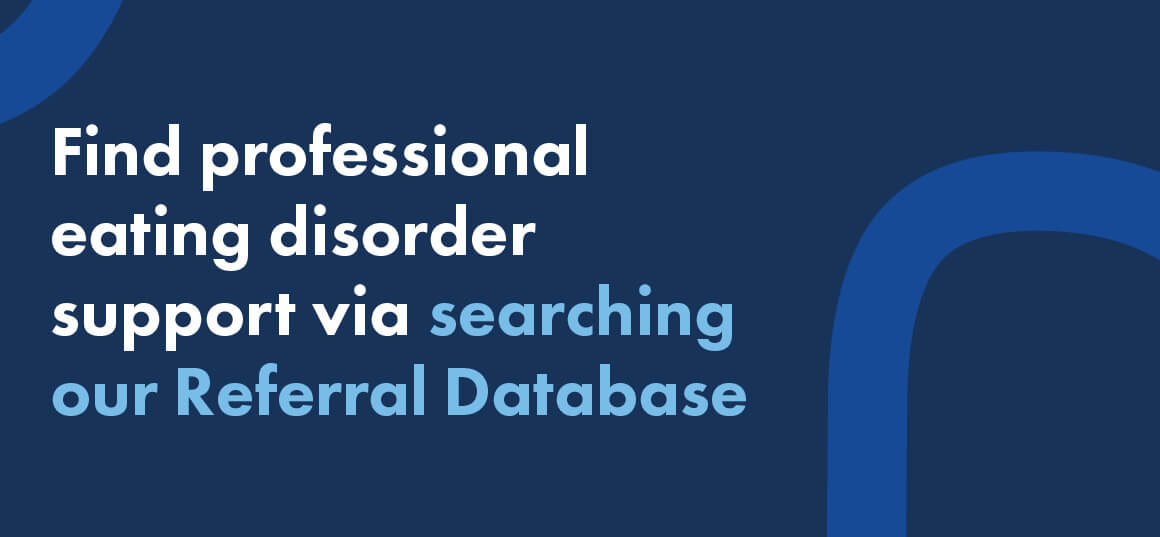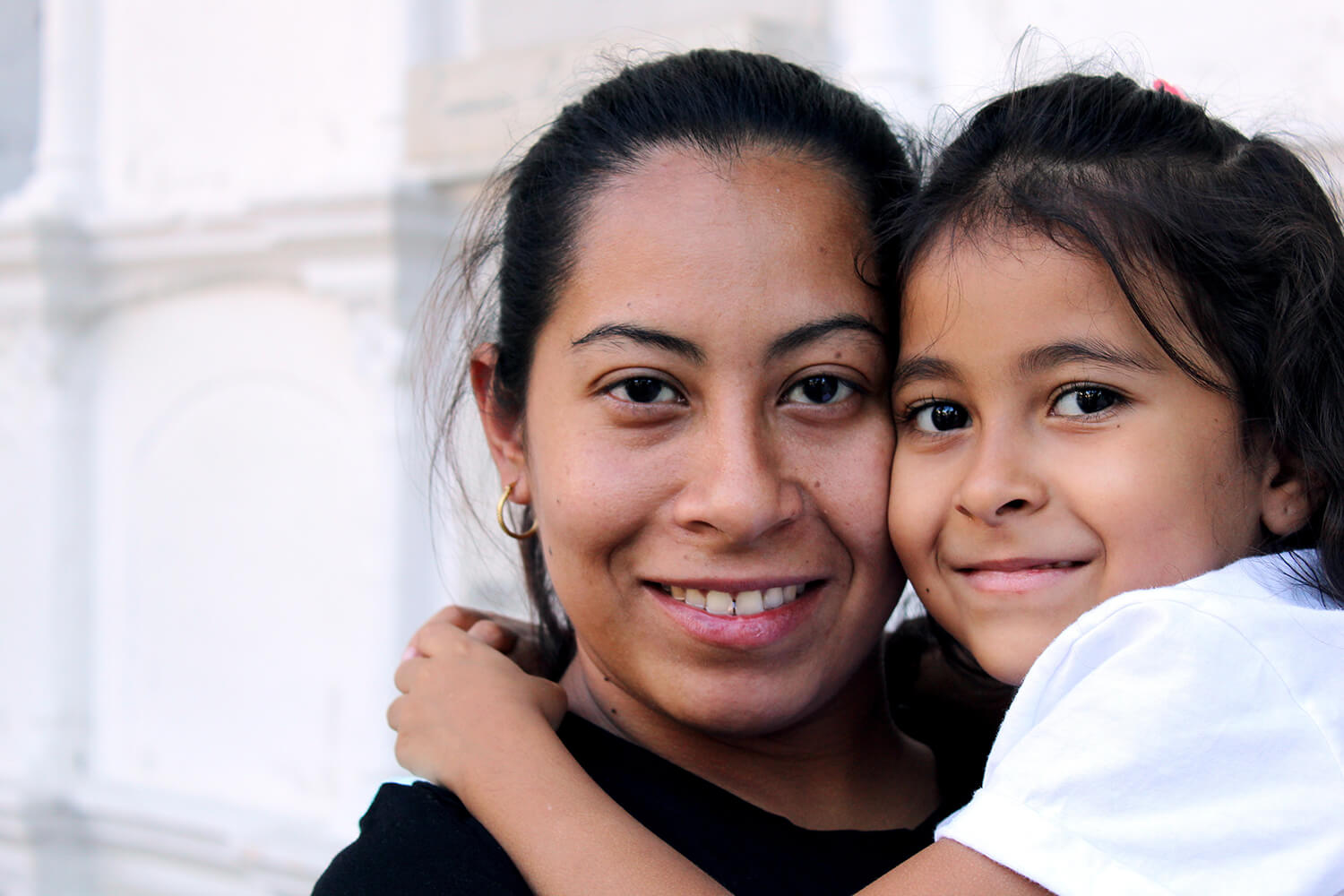The Importance of Support Groups in Eating Disorder Recovery
Recovery from an eating disorder is a long-term process that requires a range of healthcare settings to support the sufferer in their recovery journey.
Despite the steady rise in incidence, in any given year, only among 5% to 15% of people receive any treatment for their eating disorders. As such, eating disorders are often experienced in isolation, with many failing to seek treatment or support because of stigma and a lack of understanding from the general population.
Butterfly’s Support Programs Coordinator Archana Waller believes a key part in reducing this isolation is ensuring social support is readily available and viewed as an integral part of the recovery process. Archana is currently completing her Masters in Psychotherapy and Counselling.
She has been working at Butterfly for over five years, with roles spanning across the Helpline, Support Programs and Financial Assistance for Recovery. Her study, The experience of adults recovering from an eating disorder in professionally-led support groups, highlights that support groups foster hope and motivation, improve self-esteem and coping skills, and provide a safe space for individuals to connect, grow and share their experiences of an eating disorder.
Published in the Qualitative Research Journal last November, this is the first study that highlights the valuable role a facilitator plays in a support group.
Q: What are the benefits of eating disorder support groups?
Archana: For many participants, attending the support group is the first step towards accessing support and information about eating disorders and treatment services.
A safe space
For others it is a safe space to share in a respectful, non-judgemental space to talk openly and honestly about their eating disorders, and to feel validated which they may find otherwise difficult due to the stigma attached by people (in general) not understanding the complexity of mental illness.
The participants in the study further articulated they benefited from listening to past participants recovery progress, allowing them to gain insights about their illness which suggests the support group fostered hope and motivation.
A collective identity
These groups also serve an important means in preventing social isolation, with participants reporting they could gain trust, support and reassurance from others experiencing the same problem, providing “an avenue to be socially active.” By being able to communicate with others who “actually understand” participants describe a sense of ‘we-ness’ and belonging to the group.
There is a real need for community, connection and continuity which I believe the support groups can offer.
Practical and cost effective
Over the years it has become apparent that there are gaps in treatment services. Support groups are becoming a valuable component of health care that establishes, fosters and reinforces social networks. The findings of the study suggest that eating disorder professionally-led support groups (both online and/or face to face) can be both practical and cost-effective interventions that can be used to respond to these gaps in treatment services.
Q: Are there any negative aspects in support groups?
Archana: The results revealed some challenges to the functioning of the monthly support group which was explored under the theme cautions and concerns. To minimise concerns and ensure the safety and success of the group, it is important that facilitators are trained and are aware of concerns, such as comorbidities.
Social Anxiety
Research indicates eating disorders and social anxiety disorder are highly comorbid. Some participants mentioned that living with social anxiety and feeling intimated and worried about scrutiny prevented them from speaking up in the group.
Body Scrutiny and Comparison
Worry of scrutiny and anxiety also manifested in the way of body-related social comparison, that is, when people compare their appearance to that of others. Body-related social comparison is strongly associated with eating disorders, and we know that over evaluation of shape and weight is at the core of most eating disorders and is a major concern for these people (Fairburn, 2008).
A few participants expressed the discomfort they experienced when seeing the bodies of other participants, and how comparison-making was a barrier for not using the support group more frequently and it was one of the least useful aspects of the support group.
Group Dynamics
There are often challenges of having an open group.
Some participants expressed concerns over dominant group members who monopolised the group, whilst others reported the lack of variety and repetition in group discussions. This again demonstrates that having the expertise of professional facilitators is beneficial, to manage issues relating to group dynamics and processes.
Q: Why is a facilitator beneficial in a support group?
Archana: Facilitators, either professionally trained or a peer support, play a valuable role in in balancing content with compassion, ensuring safety in the group, and potentially fulfilling a valuable education function in supporting participants in their eating disorder recovery journey.
At Butterfly, our support groups are facilitated by both, professional and peer support facilitator. The peer support facilitators offer experiential empathy, whilst professional facilitators can offer psychoeducation and manage group dynamics/processes and safety in the group. So, having both type of facilitators can be highly valuable.
Q: What normally happens in an eating disorder support group?
Archana: Butterfly’s support groups are open groups so new members can join anytime. We usually have 6-15 participants with two facilitators who are trained in the field of eating disorders. The group runs once a month in the evening for an hour and a half. Currently, the groups run via Zoom, otherwise they are face to face groups. While there is no set agenda for the sessions, the facilitators co-ordinate the flow to ensure participates interact if they so desire.
Usually, the groups involve sharing experiences, and, through the facilitation of a trained worker, feedback is provided to assist in bringing about greater awareness and personal change.
Q: What led you to undertake this research? Why was it necessary?
Archana: Having facilitated recovery support groups in the past and currently facilitating carer support groups, I have witnessed firsthand the positive impact such groups have on the participants.
Many people with chronic mental illnesses attend support groups to cope better with the psychological, emotional and social challenges their illness presents. Understanding the perspectives of participants in support groups may yield important insights into the needs of the support group participants and could improve their experience of the group. My goal for undertaking this research was to highlight the value to this often-neglected space.
Archana Waller is Butterfly’s Support Programs Coordinator and is currently completing her Masters in Psychotherapy and Counselling. She has been working at Butterfly for over five years, with roles spanning across the Helpline, Support Programs and Financial Assistance for Recovery. She strongly believes in interventions that promote social connectedness and fully supports Butterfly continuing and expanding on this valuable service to those in need of support.
Want to partake in a Butterfly support group? Butterfly runs a number of recovery and carer programs. Click here for more information.




















